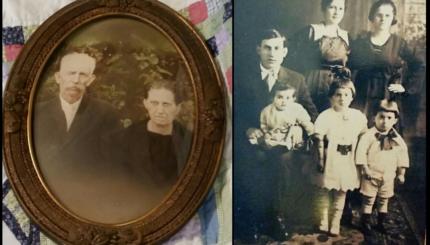Jezebel was the daughter of Ethbaal, king of the Phoenician city-state of Tyre, and wife of Ahab, king of Israel (1 Kings 16:31), in the mid-ninth century B.C.E. She was undoubtedly the chief wife of Ahab and co-ruler with him. It is implied that she was the mother of Ahab’s son and successor Ahaziah (1 Kings 22:53) and alternately implied and stated that she was mother of the next king, Jehoram (2 Kings 3:2, 13; 9:22). Ahab had other unnamed wives as well and many unnamed sons (1 Kings 20:3, 5, 7; 2 Kings 10). Hence, whether Jezebel had other children or, specifically, was Athaliah’s mother is unclear.
The extent of Jezebel’s power is evidenced by the necessity for Jehu, the founder of the next royal dynasty in Israel, to murder her before his rule can be established (2 Kings 9:30–37)—even though her royal husband and sons are, by now, dead. The biblical text insists that she is evil through and through.
Jezebel’s Power
Jezebel is the enemy of God’s prophets: she “killed the prophets of the Lord” (1 Kings 18:13). On the other hand, there are “the four hundred fifty prophets of Baal and the four hundred prophets of Asherah, who eat at Jezebel’s table” (1 Kings 18:19). Elijah kills Jezebel’s prophets on Mount Carmel (1 Kings 18). As a result, she swears that she will kill him (1 Kingns 19:3). He takes her threat seriously and flees to the south, beyond the Israelite territory. His fleeing indicates Jezebel’s power in the realm.
Another indication of her power is the story of Naboth (1 Kings 21). Ahab wishes to buy Naboth’s vineyard, which is adjacent to the royal complex in Jezreel. Naboth refuses to give or sell it, claiming its status as nontransferable ancestral land. Ahab is depressed by this but cannot do anything. Jezebel, who sees the matter as a test case of monarchic power (1 Kings 21:7), finds a way. She writes to the elders and dignitaries of Jezreel, asking them to bring two false witnesses to claim that Naboth has cursed the king and God.
Such behavior signifies treason; Naboth is stoned to death, and his property reverts to the king. Although the letter is ostensibly signed with the king’s seal (1 Kings 21:8), the report comes back to Jezebel (1 Kings 21:14). She tells
Ahab that he can inherit Naboth’s land, and he does so. Elijah protests to Ahab, “Thus says the Lord: Have you killed, and also taken possession?” (1 Kings 21:19); he prophesies that Ahab’s male descendants will die prematurely, his dynasty will perish, and that the “dogs shall eat Jezebel within the bounds of Jezreel” (1 Kings 21:23).
Ahab dies a brave soldier’s death in Samaria (1 Kings 22); his son and Jezebel’s, Ahaziah, succeeds to the throne for two years, and then dies. His brother Jehoram succeeds him and is killed by Jehu, the new contender for the throne (2 Kings 9). Jezebel is killed by Jehu as well (2 Kings 9:31–37), as she regally awaits Jehu and her doom in the Jezreel palace, some palace officials drop her through the lattice window. By the time Jehu has finished eating and orders that she be buried “for she is a king’s daughter” (2 Kings 9:34), the dogs have already eaten most of her carcass—in keeping with Elijah’s prophecy.
An Evil Queen?
Jezebel is characterized as totally evil in the biblical text and beyond it: in the New Testament her name is a generic catchword for a whoring, non-believing female adversary (Revelations 2:20); in Judeo-Christian traditions, she is evil. The Bible is careful not to refer to her as queen. And yet, this is precisely what she seems to have been. Some early Jewish, albeit post-biblical, sources deconstruct the general picture: “Four women exercised government in the world: Jezebel and Athaliah from Israel, Semiramis and Vashti from the [gentile] nations” (in a Jewish Midrash for the Book of Esther, Esther Rabbah).
Clearly, Jezebel acted as queen even though the Bible itself refuses her the title and its attendant respect, not to mention approval. In the biblical text, Jezebel is contrasted with and juxtaposed to the prophet Elijah, to the extent that they both form the two panels of a mirrored dyptich. She is a Baal supporter, he is a God supporter; she is a woman, he is a man; she is a foreigner, he is a native; she has monarchic power, he has prophetic power; she threatens, he flees; finally he wins, she is liquidated. The real conflict is not between Ahab (the king) and Elijah, but between Jezebel (the queen in actuality, if not in title) and Elijah. Ultimately the forces of God win; Jezebel loses. It remains to be understood why she gets such bad press.
It seems reasonable that Jezebel, a foreign royal princess by birth, was highly educated and efficient. Also, although her son’s theophoric names have the element yah or yahu (referring to God) in them, she seems to have been a patron and devotee of the Baal cult.
It is not incomprehensible that, whereas Ahab devoted himself to military and foreign affairs, Jezebel acted as his deputy for internal affairs: the Naboth report comes back to her, as if the king’s seal was hers; she has her own “table,” that is her own economic establishment and budget; she has her own “prophets,” probably a religious establishment that she controls. All these point toward an official or semiofficial position that Jezebel held by virtue of her character, her royal origin and connections, her husband’s and later her children’s esteem, and her religious affiliation to the Baal (possibly also Asherah) cult.
Perhaps she had the status of gebira “queen mother”, or of “co-regent”. At any rate, there is no doubt that the biblical and later accounts distort her portrait for several reasons, among which we can list her monarchic power, deemed unfit in a woman; her reported devotion to the Baal and Asherah cult and her objection to Elijah and other prophets of God; her education and legal know-how (shown in the Naboth affair); and her foreign origin. Ultimately, the same passages that disclaim Jezebel as evil, “whoring,” and immoral are witness to her power and the need to curb it.
Reprinted from the Shalvi/Hyman Encyclopedia of Jewish Women with permission of the author and the Jewish Women’s Archive.
Midrash
Pronounced: MIDD-rash, Origin: Hebrew, the process of interpretation by which the rabbis filled in “gaps” found in the Torah.


